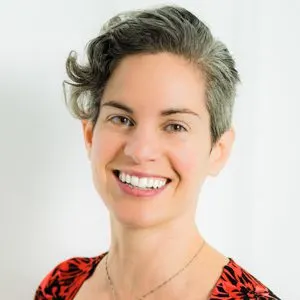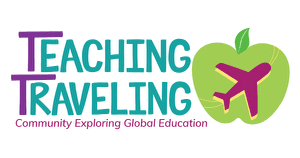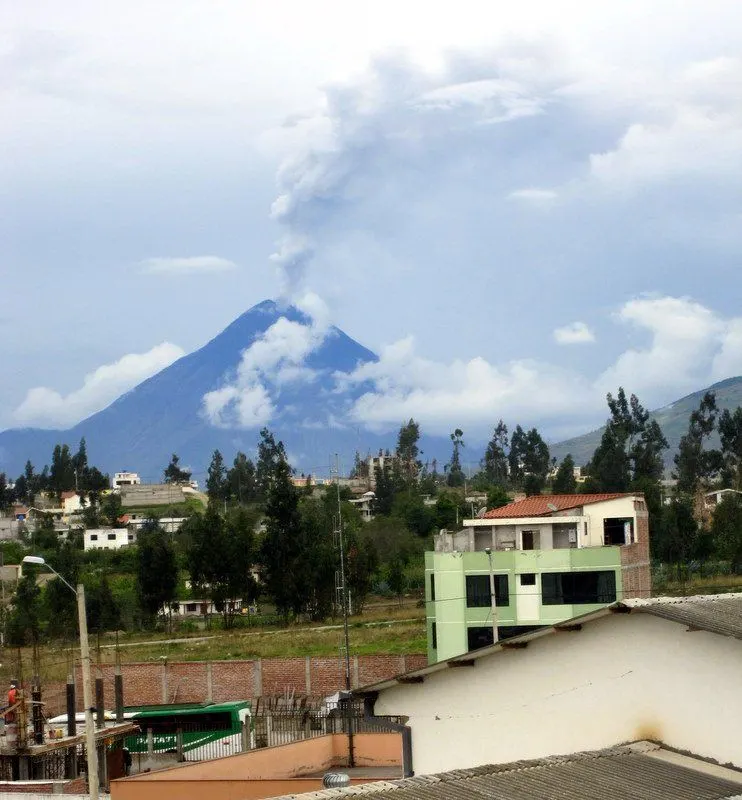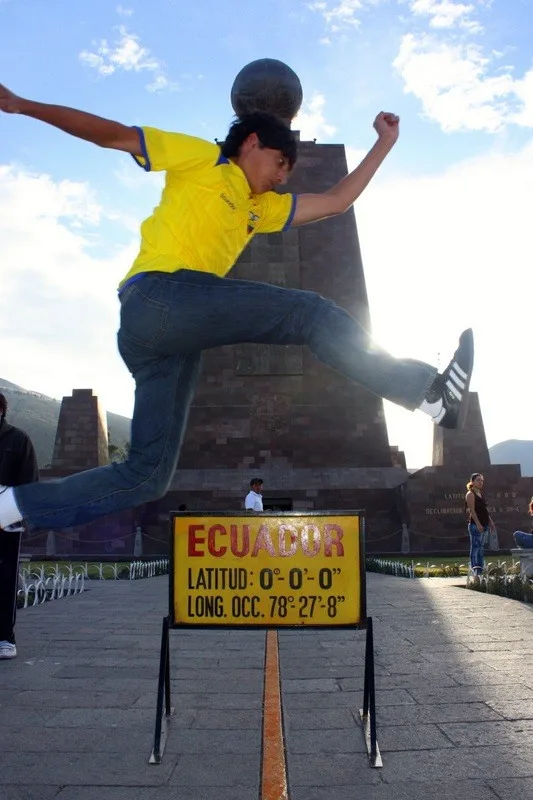Ever worried that you’d be “wasting time” by teaching abroad, especially if you don’t plan on teaching forever?
Erase that thought by reading Krishna’s account of teaching English in Ecuador in order to gain the skills he will need as a doctor!
Teaching Traveling: Take it away, Krishna!
My name is Krishna Surasi and I am an ESL teacher in Ambato, Ecuador.
I graduated from college in May 2010, but the story of how I ended up teaching abroad begins in August 2008. As an undergraduate I wanted to go to medical school, but my major was Spanish literature so I opted to abandon my science courses for a semester to study abroad in Puebla, Mexico, during my junior year. Like everyone else who studies abroad in college, I had a great experience and the idea of living abroad again to study or work never really left my mind.
A year after returning from Mexico, I found myself as a second-semester senior applying to medical school to matriculate in the fall later that year. As much as I wanted to go to medical school right away, I couldn’t help but think back on my time abroad and how much I would have liked to have another experience living in a foreign country.
Furthermore, as I learned more about the rigors of medical school and the urgency of everything that comes afterward, I came to the stark realization that once I start medical school I might never have the chance to spend a significant amount of time abroad again.
With an anxious desire to spend at least one more year outside of the U.S. before I started my medical career, I scoured the Internet for possible work programs. The reason I became interested in teaching programs in particular was twofold: first because I was a Spanish tutor in college and I quite enjoyed that job, and second because of a linguistics course I took my senior year that got me interested in the field of second language acquisition.
I looked to the Internet for help finding a good program that would provide me with some ESL teacher training and set me up with a job abroad. After sifting through a sea of sketchy programs, I stumbled upon the website of a non-profit organization based out of Boston called WorldTeach.
I looked at the details of their volunteer programs in South America (the area in which I was most interested in teaching), and the dates for their Ecuador program worked out perfectly for the timeframe I was considering. After I was accepted to the program, I decided that I would put off starting my medical career for a year so I could take advantage of the opportunity to live abroad again before getting swept up in the life-consuming tornado that is medical school.
With all of my pre-med friends in a rush to start medical school immediately after graduating from college, I was questioned by more people than I care to count about why I wanted to teach English in Ecuador for a year if what I ultimately wanted to do was practice medicine in the United States. My answer to that questions usually begins by bringing up the most obvious advantage of living abroad: the opportunity to learn a foreign language.
Spanish continues to be an important language for the populations of many parts of the United States (my hometown of New York City being no exception) so it is not hard to understand why it would be incredibly helpful for a physician to be able to speak Spanish and communicate directly with a larger population of his patients.
Another skill to be gained from living abroad that I know will apply to a future career in medicine is perhaps less obvious, but just as important for communication as language. I am a strong believer in the idea that a doctor’s job is about more than giving orders; it is about helping people get better.
Part of being able to do this is connecting with patients and instilling them with the confidence that you know what is right for them by first demonstrating that you understand their unique circumstances. An important way to win this kind of respect and confidence from strangers is to demonstrate that you know something about their culture or that you are at least willing to see the world from their perspective and learn about their culture.
By teaching abroad in Ecuador I will obviously learn a lot about the Ecuadorian language and culture specifically, but the ability to be comfortable dealing a culture different from my own and to be open to learning about different ways of life will be more widely applicable to encounters with patients from any background.
Furthermore, working as a teacher I am presented with a wide variety of challenges that include issues of organization, motivation, public speaking, and management. By tackling these challenges I am learning new skills that will be as useful outside the classroom as they are inside.
My first semester teaching I had around fifty students in a school with no books or curricula. After planning out that semester, handling a few hundred pages of lecture slides in med school will seem underwhelming by comparison. Similarly, if I can explain something like the present perfect progressive to someone who isn’t a native English speaker in English, I am confident that I can explain something like diabetes to someone in his own language.
A common expression for students who do something for a year before matriculating to grad school is “taking a year off.” I have also encountered people who were incredulous that I was not worried about “wasting a year” working with WorldTeach when I could have gone straight to medical school after college. As far as I’m concerned, neither of these expressions holds any weight in a discussion about teaching abroad.
Like I said before, working as a teacher abroad is an investment. The skills you learn and the experiences you have abroad will not be left behind in your host country at the end of your stay; they stick with you and are transferable to your life when you return home regardless of your profession.
Take my case for example: being an ESL teacher and a doctor might seem like completely different worlds, but as I have suggested in this piece, there is more overlap in the skill sets of a teacher and a physician than you might at first suspect.
In conclusion, my advice to anyone interested in traveling abroad to be a teacher is to step back, take a long look at the big picture, and seriously consider the opportunity.
It is easy for students coming straight out of college to get caught up in the rush to immediately matriculate into grad school or get a high-paying job, but I’m not sure that there is really a better time to live abroad than when you are fresh out of college with few obligations to attend to in your home country and a youthful eagerness to see what the rest of the world has to offer.
Thanks so much, Krishna! Indeed, the skills learned by teaching abroad are applicable to ANY career we choose to subsequently pursue. If you want to read more of Krishna’s exploits, check out his blog at Eisforecuador.blogspot.com. Readers, what questions or comments do you have for Krishna?

The author, Lillie Marshall, is a 6-foot-tall National Board Certified Teacher of English from Boston who has been a public school educator since 2003. She launched TeachingTraveling.com in 2010 to share expert global education resources, and over 1.6 million readers have visited over the past decade. Lillie also runs AroundTheWorld L.com Travel and Life Blog, and DrawingsOf.com for educational art. Do stay in touch via subscribing to her monthly newsletter, and following @WorldLillie on social media!






Kate Dana
Saturday 16th of April 2016
What a wonderful article, Krishna! Love the photo with the crab at dinner :)
Jenny Hayes
Thursday 9th of January 2014
"I had a great experience and the idea of living abroad again to study or work never really left my mind." Isn't that the truth? I appreciate the blurb about considering the big picture. There's something about living in an entirely different culture long term that affects you for the "big picture," causes you to value different things. Flexibility is learned quickly, too!
Cat of Sunshine and Siestas
Thursday 30th of May 2013
Teaching abroad in Spain has afforded me much more than speaking better Spanish (and picking up a husband in the process) - better communication skills, better organizational skills, an interest in child psychology and more cultural awareness. I never expected it to turn into a career for me!
Thanks for sharing!
Travis
Friday 29th of June 2012
Krishna,
Sorry for such a delayed response (especially when juxtaposed against yours). I really appreciate your tips, and wish you the best of luck in all that you do.
Travis
D.J. - The World of Deej
Friday 29th of June 2012
Great tips L...One of my biggest regrets after school was not taking the time to look at the big picture. I dove right into a job, and wish I had done other things first...